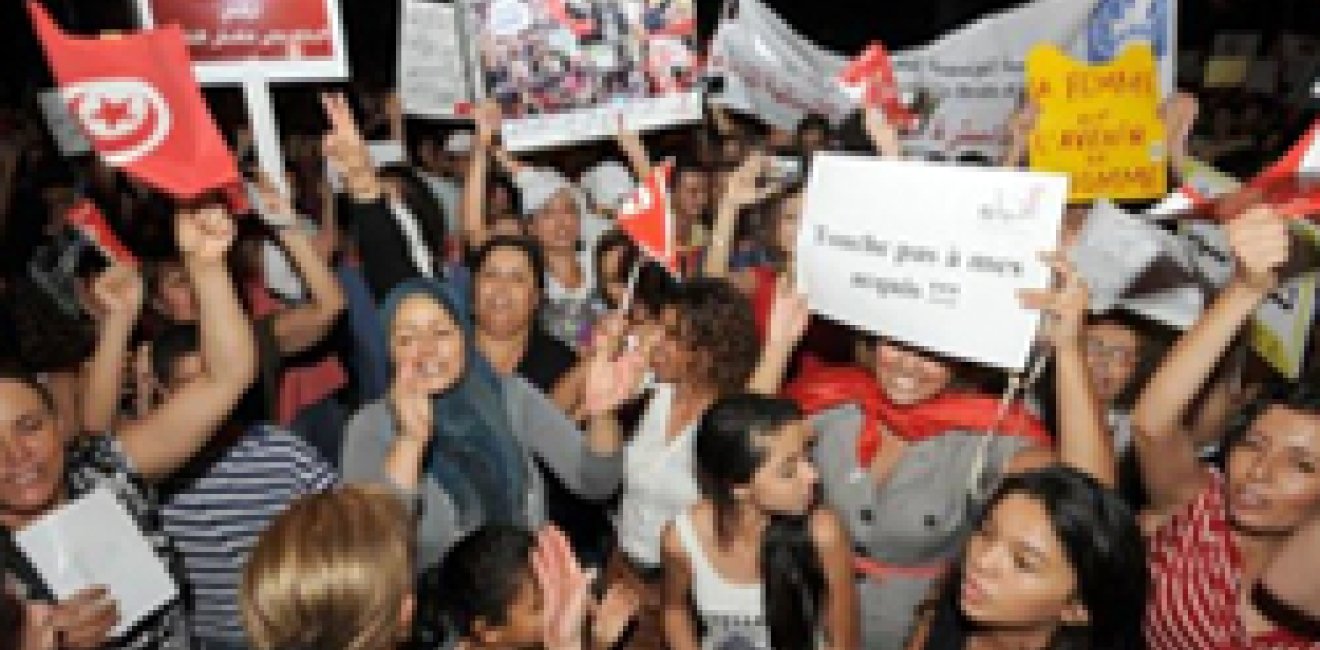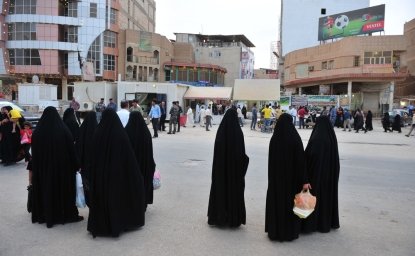On April 25, the Woodrow Wilson International Center for Scholar’s Global Women’s Leadership Initiative (GWLI), UN Women, and the Ministry of Women’s Affairs in Tunisia convened a Regional Strategic Roundtable on “Women’s Participation: The Making of the Tunisian Constitution.” The Strategic roundtable brought together gender and constitutional law experts from Tunisia and the MENA region to discuss key provisions of the draft Constitution of Tunisia and its impact on gender equality. GWLI’s regional roundtables have become a catalyst for convening our WPSP network on the ground. The Tunisian delegates of the Women in Public Service Project also came together for the roundtable.
The making of the Tunisian Constitution is a critical moment in the history of Tunisia, the Middle East, and the world. As the cradle of the Arab revolutions, all eyes are on Tunisia’s history-making process of constitutional drafting. The Strategic Roundtable took place the day after the release of the third draft of the Tunisian Constitution. The conference offered the first forum for deliberation on this third draft and provided a seminal forum for debate on some of the most pressing issues of the draft.
The Minister for Women’s Affairs opened the consultation discussion by emphasizing this historic moment in Tunisia and the need to ensure that women’s equality is made central to the constitutional-making process. The UN Regional representative spoke of the importance of CEDAW and the UN Security Council Resolution 1325 as important benchmarks in drafting the new constitution. Rangita de Silva de Alwis of the GWLI discussed comparative best practices around the world that had embraced a people and process-driven constitutional-making project that articulated all seven of the core human rights treaties and examined the impact of all constitutional provisions through a gender lens. She referred to the way in which Rwanda’s new Constitution post-conflict guaranteed a seat at the table for women by enshrining a quota for women in the Constitution. Moreover, gender neutral language that embraces both the male and female pro noun was key to the success of the South African Constitution.
The regional experts then discussed strengths and weaknesses of their own constitutional-making efforts. A basic framework of best practices and lesson learned from the regional experts provided useful guidance to national experts seeking to ensure that gender equality is enshrined in their constitutional documents.
A major focus of the Roundtable was the provision that called for compliance with international human rights norms insofar as they do not violate cultural norms and Islamic principles. All of the Tunisian gender experts were extremely anxious about the way in which this Article foreshadowed a creeping Islamization.
The second major issue was that although reservations to CEDAW Article 9 (equal rights on nationality) and Article 15 (equal rights to choose residency) were withdrawn by the interim government in Tunisia, nothing has been done to draft enabling legislation or change the current law in compliance with the lifting of the reservations.
Full citizenship for women and gender equality is key to the sustainability and endurance of Tunisia’s Constitution. It is also key to national and regional stability and the strengthening of the rule of law and democracy. A "people-driven" constitution provides an important rallying point for women to consolidate gains and plug all legal loopholes.
The recommendations and comments that were made by the national and regional experts at the Strategic Roundtable were compiled by the Ministry of Women’s Affairs to be submitted to the Constituent Assembly for urgent consideration and deliberation.
Please see the report from the event, "Women's Participation: The Making of the Tunisian Constitution," to learn more.





